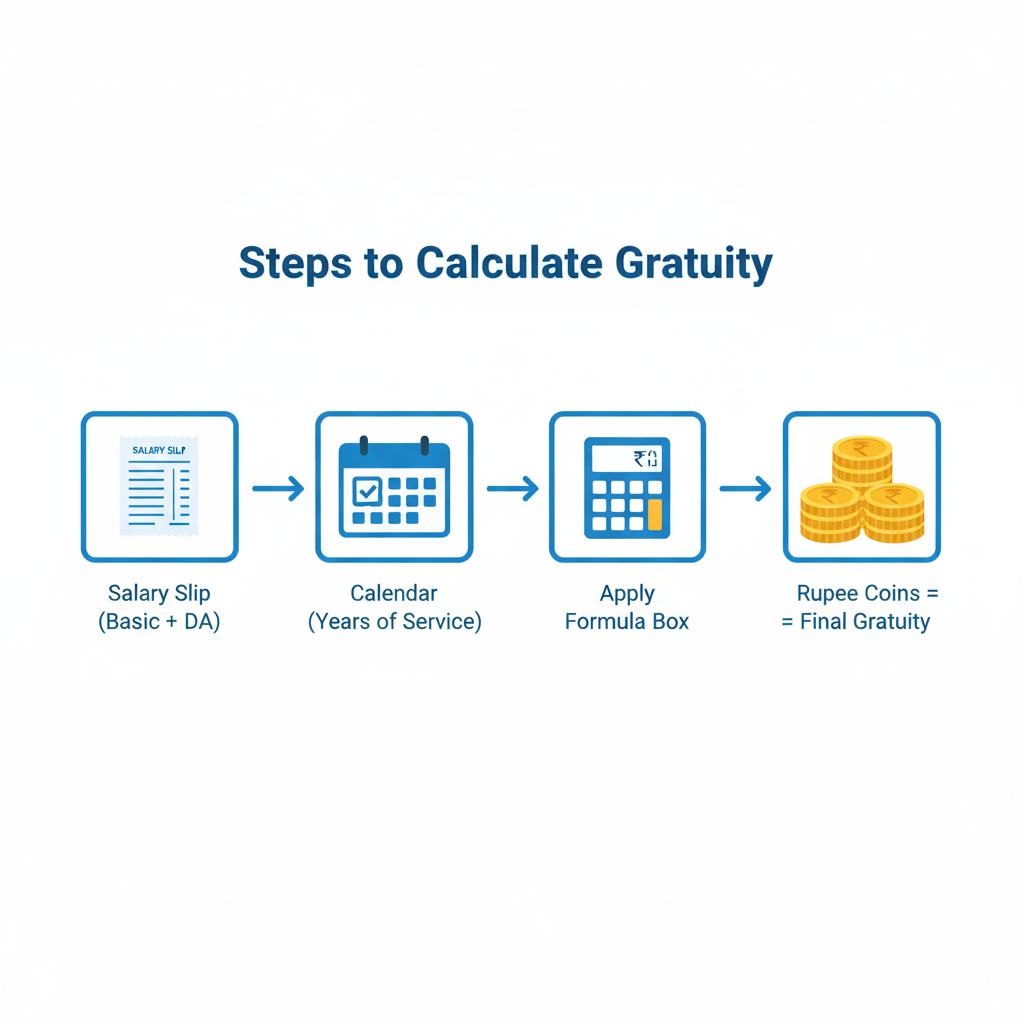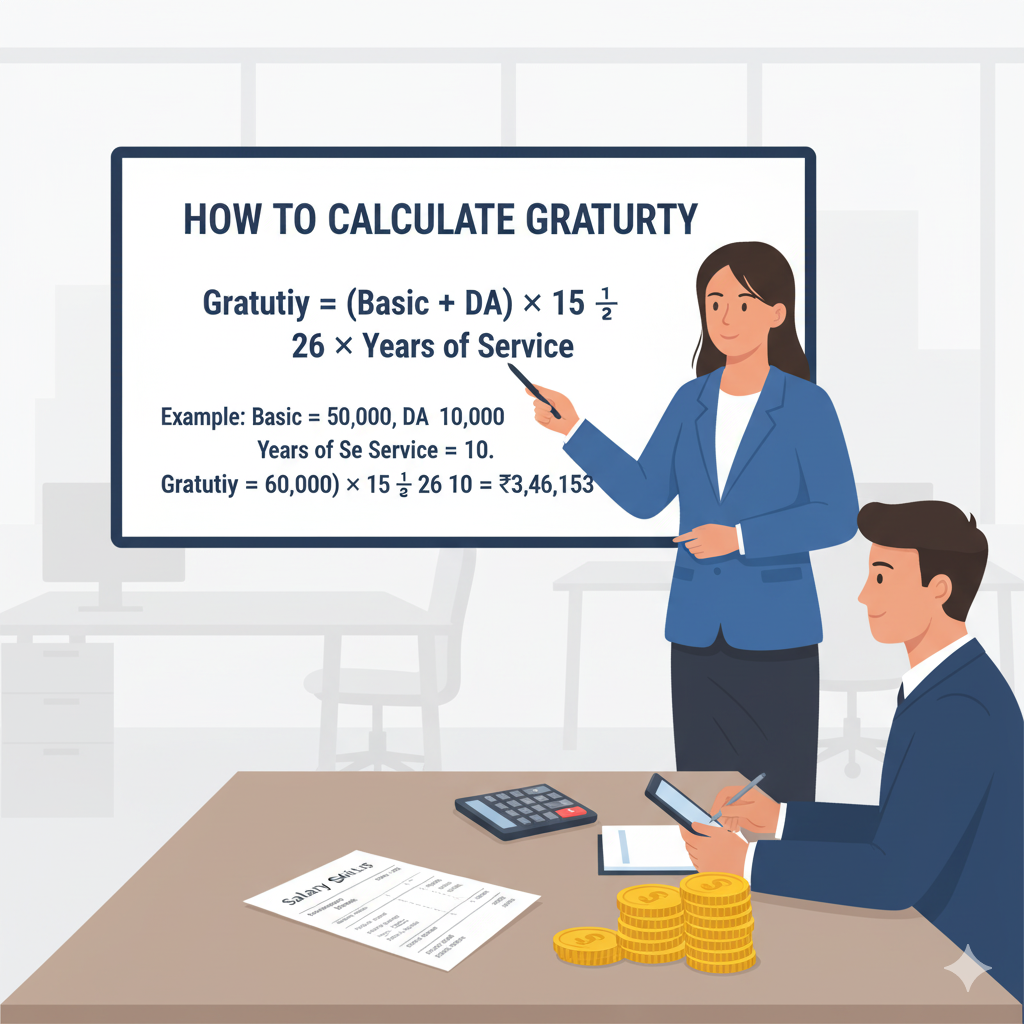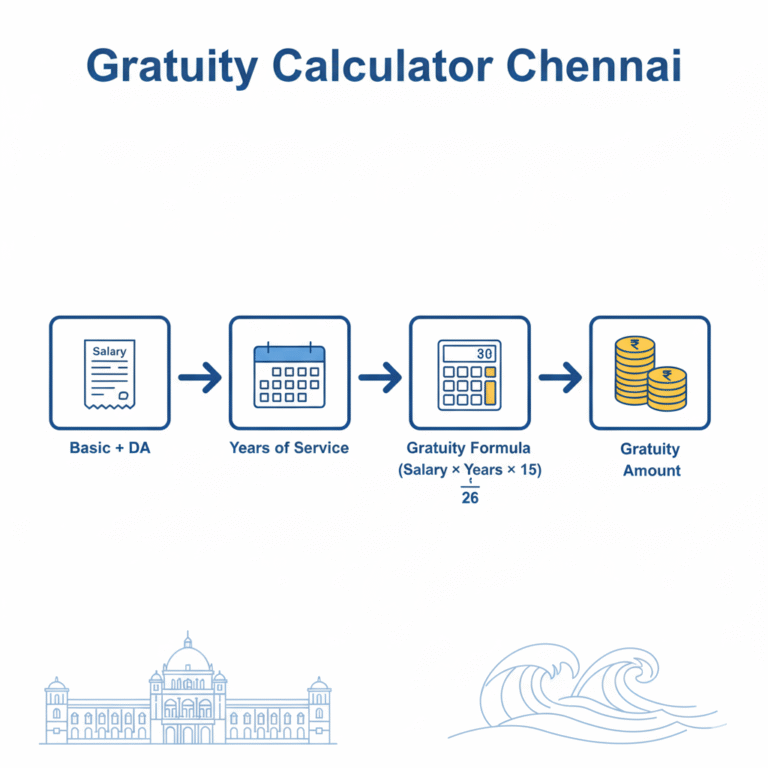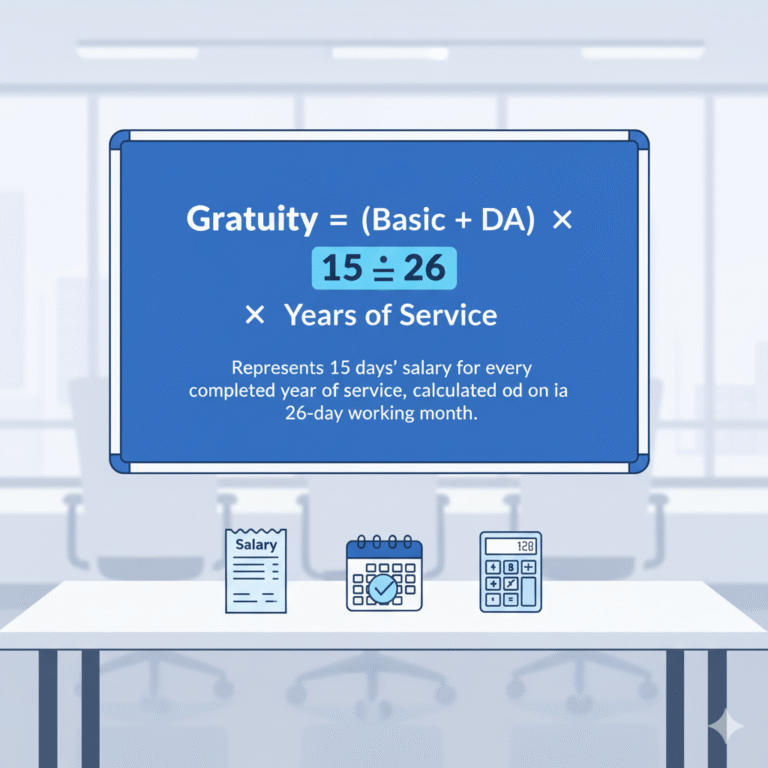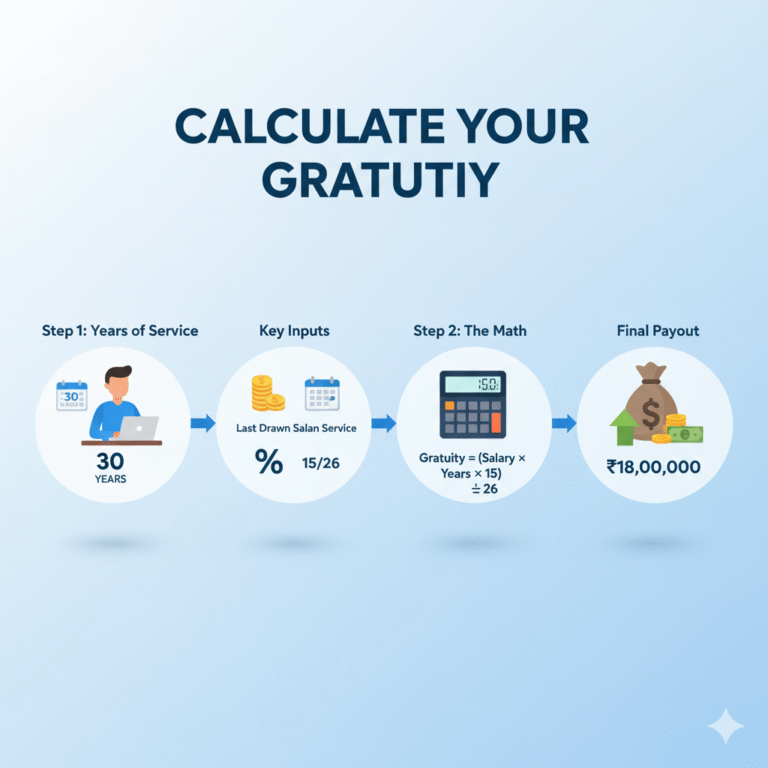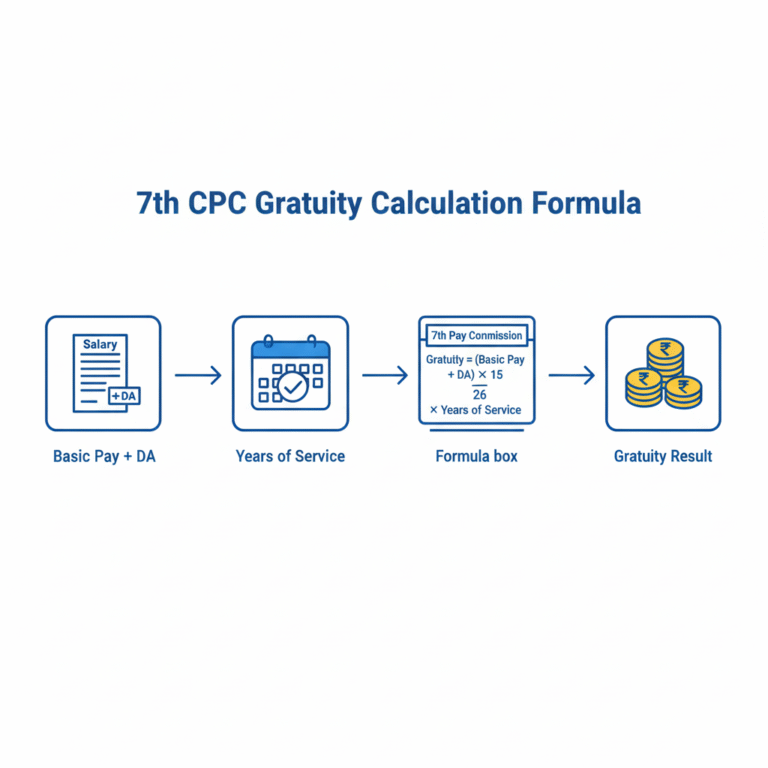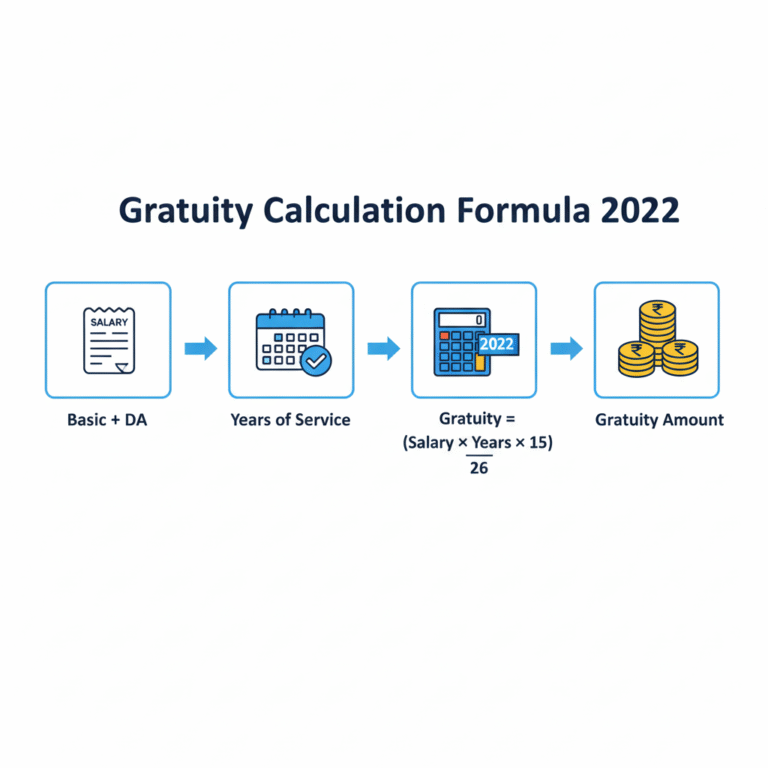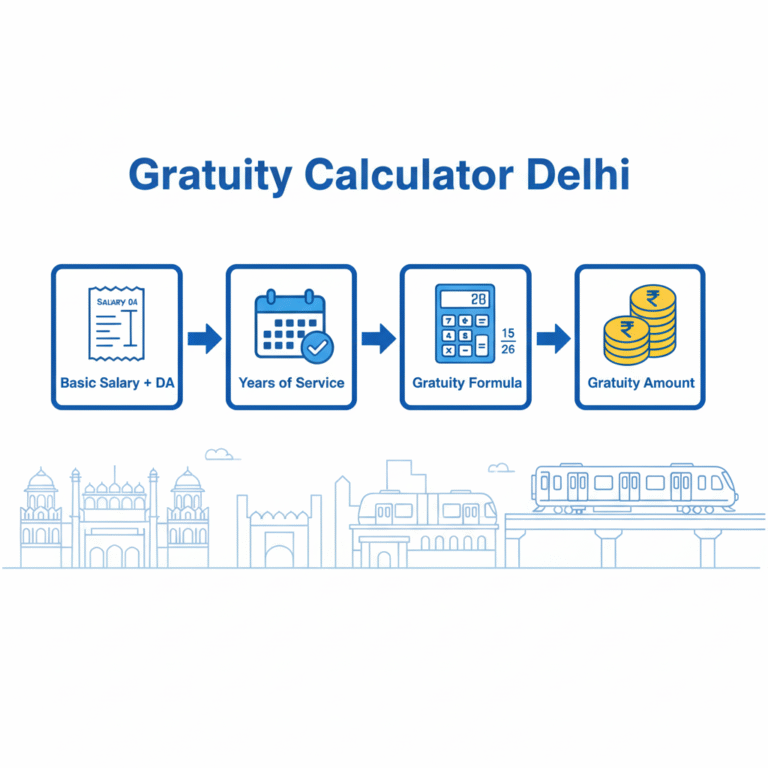How to Calculate Gratuity – Step-by-Step Formula & Complete Guide
How to Calculate Gratuity is a heartfelt thank-you from your employer for your years of dedicated service. It’s more than just money—it’s a financial safety net for life’s transitions, like retirement or a career change. Whether you work in the private sector, government, or elsewhere, understanding how to calculate your gratuity ensures you’re ready for the future. This guide breaks down what gratuity is, who qualifies, how to calculate it, and key tips to make the most of it—all in a clear, human-friendly way.
What is Gratuity and Why It Matters
Gratuity is a one-time payment from your employer, rewarding you for long-term service. In India, it’s governed by the Payment of Gratuity Act, 1972, and similar laws exist globally. For employees, it’s a financial boost during retirement or after leaving a job. For employers, it’s a way to show appreciation and encourage loyalty.
Think of gratuity as a cushion—it helps you navigate life after a job, whether you’re retiring, switching careers, or facing unexpected changes.
Who Can Claim How to Calculate Gratuity
Before diving into calculations, let’s check if you qualify:
- You need at least 5 years of continuous service with the same employer.
- If an employee passes away or becomes permanently disabled, gratuity is paid even if the 5-year mark isn’t reached.
- It applies to employees in workplaces like factories, shops, mines, or companies with 10 or more workers, as covered by the Gratuity Act.
The Legal Side of How to Calculate Gratuity
In India, the Payment of Gratuity Act, 1972, sets the rules for eligibility, calculations, and payments. Even if your workplace isn’t covered by the Act, some employers offer How to Calculate Gratuity based on their own policies.
Globally, gratuity varies:
- In the Middle East, it’s often part of end-of-service benefits.
- In Western countries, pension plans may take its place.
The core idea? Rewarding you for years of hard work.
How to Calculate Gratuity: The Formulas
The calculation depends on whether your employer falls under the Gratuity Act.
For Employees Covered by the Act
Use this formula:
Gratuity = (Last drawn salary × 15 × years of service) ÷ 26
- Last drawn salary: Includes your basic pay, dearness allowance (DA), and any commissions.
- 15: Represents 15 days’ salary per year of service.
- 26: Assumes 26 working days in a month (excluding weekends).
For Employees Not Covered by the Act
The formula changes slightly:
Gratuity = (Last drawn salary × 15 × years of service) ÷ 30
- Here, 30 days are used for a month.
Key Notes for Calculations
- Only completed years count. If you’ve worked 6 months or more in a year, it rounds up to the next year; less than 6 months is ignored.
- Use your last drawn salary, not an average.
- Employers must pay within 30 days of your gratuity becoming due.
Gratuity Calculation Examples
Let’s make it real with examples.
Example 1: Covered by the Act
You worked 12 years and 7 months, with a last drawn salary of ₹40,000 (basic + DA).
- Step 1: Round 12 years and 7 months to 13 years.
- Step 2: Calculate: Gratuity = (40,000 × 15 × 13) ÷ 26 = ₹3,00,000 (approx).
Example 2: Not Covered by the Act
You worked 8 years and 4 months, with a last drawn salary of ₹25,000.
- Step 1: Use 8 years (4 months doesn’t round up).
- Step 2: Calculate: Gratuity = (25,000 × 15 × 8) ÷ 30 = ₹1,00,000 (approx).
Gratuity Limits
Under the Gratuity Act (amended in 2018), the maximum gratuity is ₹20 lakhs. Anything above this is taxable. Government employees may have different limits, sometimes with no cap.
Taxes on Gratuity
Tax rules depend on your job:
- Government employees: Gratuity is fully tax-exempt.
- Private sector employees (under the Act): You’re exempt up to the lowest of:
- The actual gratuity received.
- ₹20 lakhs.
- The calculated gratuity amount.
- Private employees (not under the Act): Exemptions apply but are calculated differently.
Any amount above the exempt limit is taxed as “Income from Salary.”
Gratuity in Different Scenarios
- Retirement: Get gratuity if you’ve served 5+ years.
- Resignation: Eligible after 5 years of service.
- Death or Disability: Paid regardless of service length, to you or your nominees.
Gratuity vs. Other Benefits
- Gratuity vs. Provident Fund: Provident fund involves contributions from you and your employer; gratuity is fully employer-funded.
- Gratuity vs. Pension: Pensions give monthly payments; gratuity is a one-time sum.
- Gratuity vs. Bonus: Bonuses depend on performance; gratuity is tied to your service length.
What Affects Your Gratuity
- Years of service: More years, bigger gratuity.
- Last salary: Higher salary means a larger payout.
- Company policies: Some employers offer better terms than the law requires.
- Employment type: Rules differ if you’re under the Act or not.
Gratuity for Contract or Part-Time Workers
Good news: If you’re a contract or part-time worker with an employer-employee relationship in a covered workplace, you may still qualify. The calculation depends on your salary and tenure.
Clearing Up Gratuity Myths
- Myth: Gratuity is optional. Truth: It’s a legal right if you meet the criteria.
- Myth: You must apply for gratuity. Truth: Employers should pay automatically, but applying can speed things up.
- Myth: Gratuity includes all salary components. Truth: Only basic salary and DA count.
How to Claim Your Gratuity
Submit Form I to your employer. They’ll calculate and notify you of the amount. If there’s a dispute, contact the Controlling Authority under the Gratuity Act.
Tips to Boost Your Gratuity
- Stay with one employer longer to increase your service years.
- Understand your salary components (basic + DA) for accurate calculations.
- Know tax exemptions to minimize liabilities.
- Nominate family members to secure the payout if something happens to you.
Gratuity Around the World
- In the Middle East (e.g., UAE, Qatar), gratuity is often calculated as 21 or 30 days’ wages per year of service.
- In the USA or UK, pensions or retirement plans often replace gratuity.
Employers’ Role in Gratuity
Employers must calculate and pay gratuity on time. Delays can lead to penalties or interest. Many companies use gratuity insurance to manage this responsibility.
FAQs On How to Calculate Gratuity
Final Thoughts How to Calculate Gratuity
Gratuity isn’t just a paycheck—it’s a reward for your loyalty and hard work. By understanding how to calculate it, you can plan your finances with confidence, whether you’re retiring, resigning, or exploring new opportunities. Stay informed about the rules, formulas, and tax benefits to ensure you get what you’ve earned. It’s your financial safety net, built from years of dedication.

